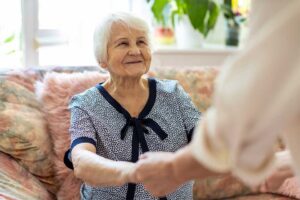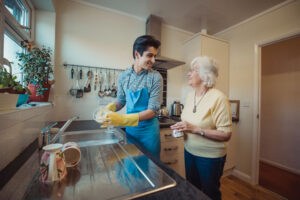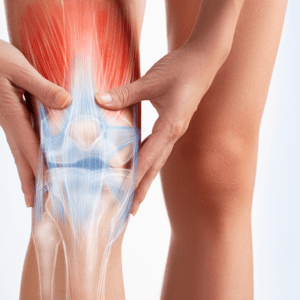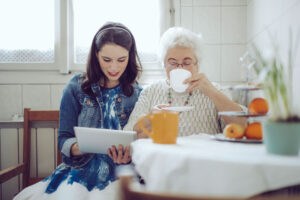Did you know that today almost 90% of those aged 65+ want to age in their own home? And with the amount of help available today to accommodate this, it’s no wonder home care is on the increase. But with staying at home comes several physical and mental requirements to take into consideration, and where do you start?
We know how daunting it can be to take the step for yourself or a loved one when finding the right partner to provide this care; so, in the mean time we’ve put together 6 home modifications to help your loved one remain in their own home, safely, for as long as possible.
Minor modifications
1. Remove trip hazards
Falls are the most common cause of injury-related death in those aged over 75 and loose carpets or floorboards can easily catch an older person off guard. Simply walking around the house looking for possible hazards can make a big difference.
2. Install proper lighting
As we get older our eyesight deteriorates, meaning we’re less able to differentiate between dark and light. Elderly people also lack regular access to sunlight, which in turn can cause Vitamin D deficiency leading to weakened bones and muscles. Combatting this is often as simple as buying specialist elderly lighting, bulbs or lamps, to ensure they can see clearly throughout their home.
3. Fire safety
Fire alarm checks can easily be forgotten but takes just 30 seconds to check. You can also fit specialist alarms if your loved one is hard of hearing or has reduced sight.
Major modifications
1. Mobility
Wider doorways, entrances without steps and stairlifts will all ensure your loved ones are able to move around their home easily and, more importantly, safely.
2. Bathroom
Having spent your entire adult life being accustomed to privacy, it can be daunting to give that up in your later years. Consider converting a downstairs room into a bathroom for better accessibility or converting the entire bathroom into a wet room. It might be as simple as installing non-slip floor surfaces or grab bars.
3. Doorstep scams
Answering the door can be troublesome in later years – not only having to get to the door in time to answer it, but in terms of the safety of doing so. The most common door modification is a door-entry intercom or video phone, allowing your loved one to easily see and speak to whomever is at the door, without needing to get up from their chair.
Nowadays, there’s no need to leave the home when you need some support. Homecare Gurus Ltd is passionate about providing completely bespoke support around specific needs. Whether you need someone to pop in a few times a week, or someone to come by every morning and evening, home care is a flexible solution that suits many people.





